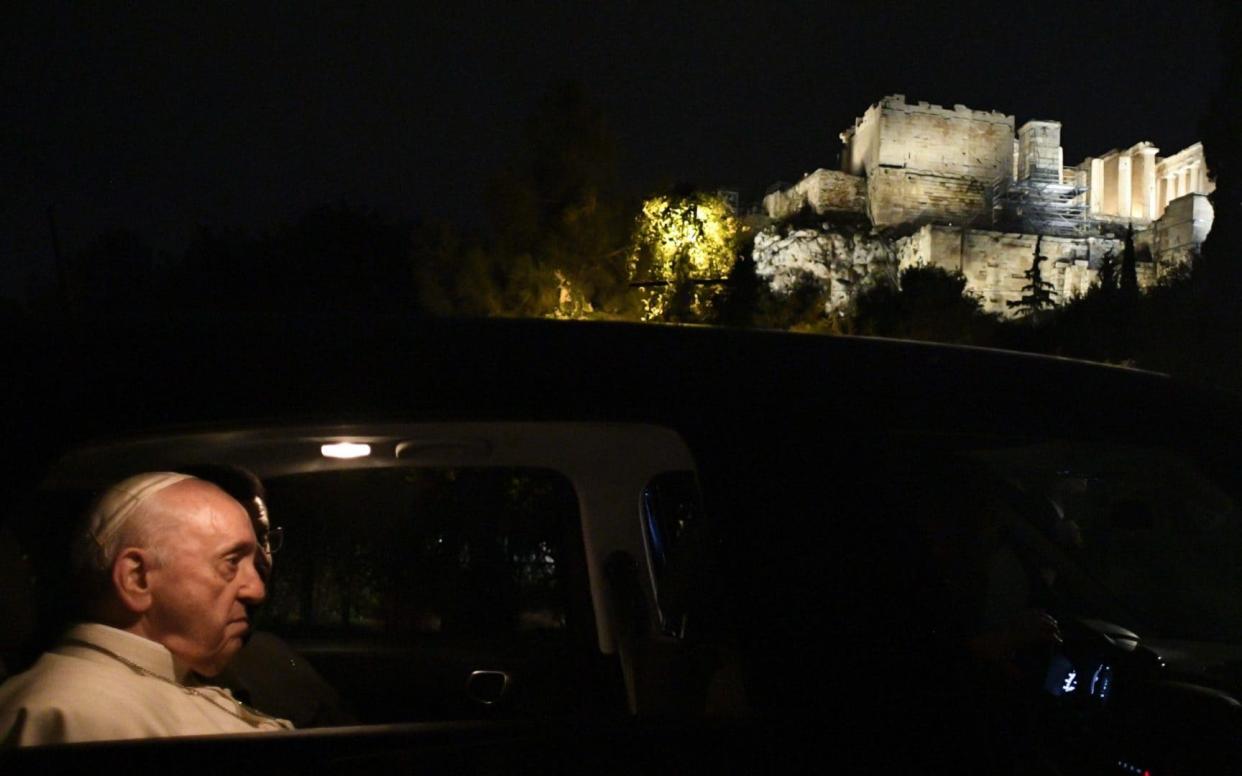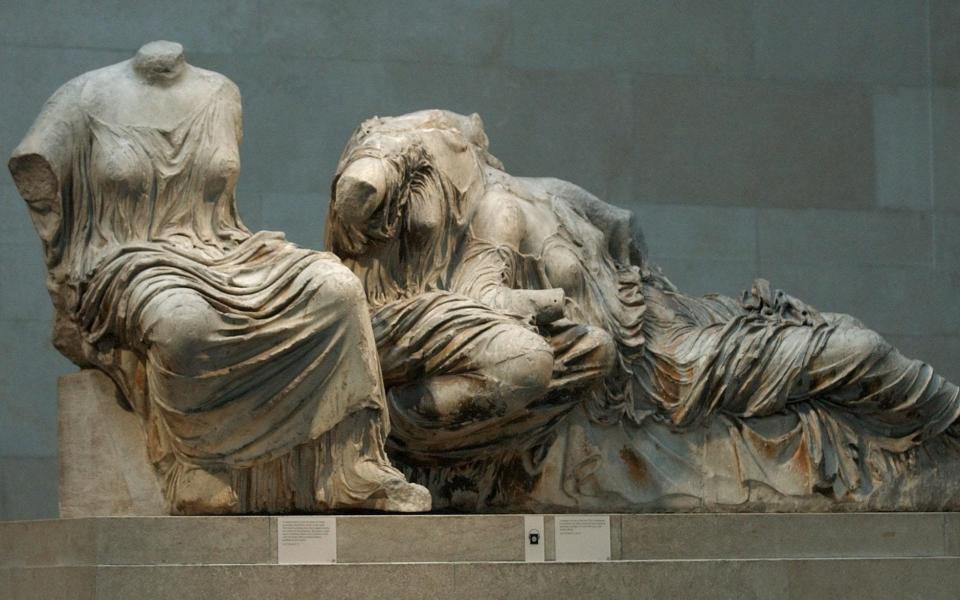Pope says Vatican will return Parthenon Marbles, piling more pressure on UK

Pope Francis announced on Friday that the Vatican will return to Greece three fragments of the Parthenon Marbles that have been held in the Vatican Museums for centuries.
The surprise announcement is likely to pile further pressure on the British Museum in London to return to Athens the sculptures that it holds.
The Vatican is not returning the marble fragments to the Greek state, but to the head of the Greek Orthodox Church, Archbishop Ieronymos II.
The decision was intended by the Holy See to be “a concrete sign” of ecumenical friendship between the two Churches, the Vatican said in a statement.
It noted that the three fragments had been “held with care for centuries in the Vatican Museums and shown to millions of visitors from all over the world”.

The sculptures include a horse’s head, the head of a boy, and the head of a bearded male.
The Parthenon Marbles, known in Britain as the Elgin Marbles, are sculptured friezes that ran around the outer walls of the Parthenon Temple, which sits on top of the rocky outcrop known as the Acropolis in the heart of Athens. The temple was built between 447BC and 432BC and was dedicated to the goddess Athena.
Many of the friezes were acquired by Lord Elgin, at the time a diplomat to the Ottoman Empire, in the early 19th century.
Greece has long called for the British Museum to return its collection, which would join the friezes owned by the Greeks in a modernist museum at the foot of the Acropolis.
George Osborne held secret talks with Greek PM
The Greek media recently reported that George Osborne, the chairman of the British Museum, had held secret talks with Kyriakos Mitsotakis, the Greek prime minister, over the return of the marbles.
The British Museum did not deny that talks had taken place but said it was not about to “dismantle” its collection of artistic treasures.
“We operate within the law and we’re not going to dismantle our great collection as it tells a unique story of our common humanity,” the museum said in a statement. “But we are seeking new positive, long-term partnerships with countries and communities around the world, and that of course includes Greece.”
In July, Jonathan Williams, the museum’s deputy director, said the institution wanted to “change the temperature of the debate” around the ancient sculptures.
“What we are calling for is an active ‘Parthenon partnership’ with our friends and colleagues in Greece,” he told the Sunday Times. “I firmly believe there is space for a really dynamic and positive conversation within which new ways of working together can be found.”
Reacting to the news from the Vatican, former culture minister Lord Vaizey said: “Today’s news brings us a step closer to seeing the Parthenon Sculptures reunified as one piece of art in Athens, as always intended.”
The Conservative peer heads the Parthenon Project, an organisation which is campaigning for the repatriation of the marbles to Athens.
“There is now a golden opportunity for the British Museum to deliver a similarly magnanimous deal that benefits both sides. We are confident that this will be possible under George Osborne’s leadership,” he said.
During a debate in parliament on Thursday, he said that the Parthenon is like a movie with half missing due to the absence of the Elgin Marbles.
He told the House of Lords: “The frieze is like a movie that's been cut in half and half has been taken against the will of its owners to another country.” The situation must be remedied, he said.

 Yahoo News
Yahoo News 
